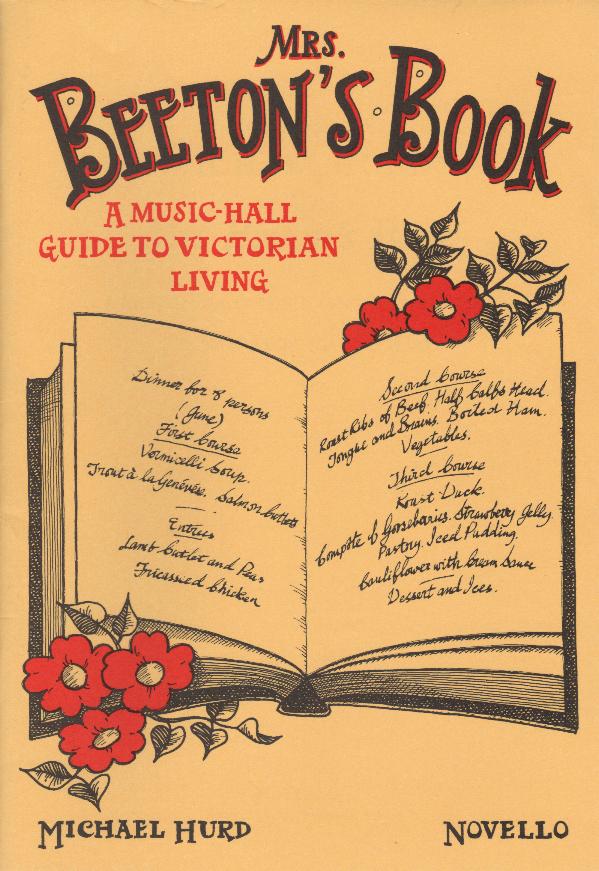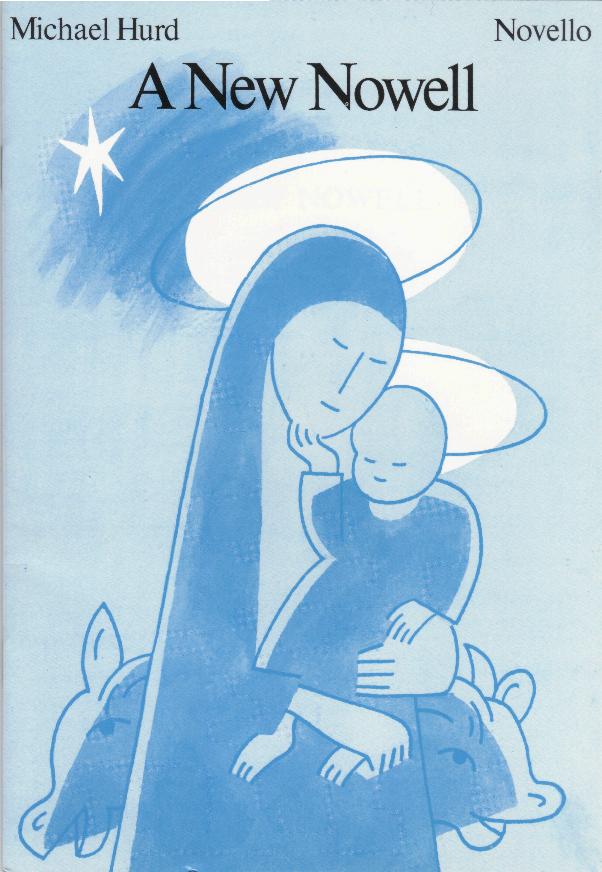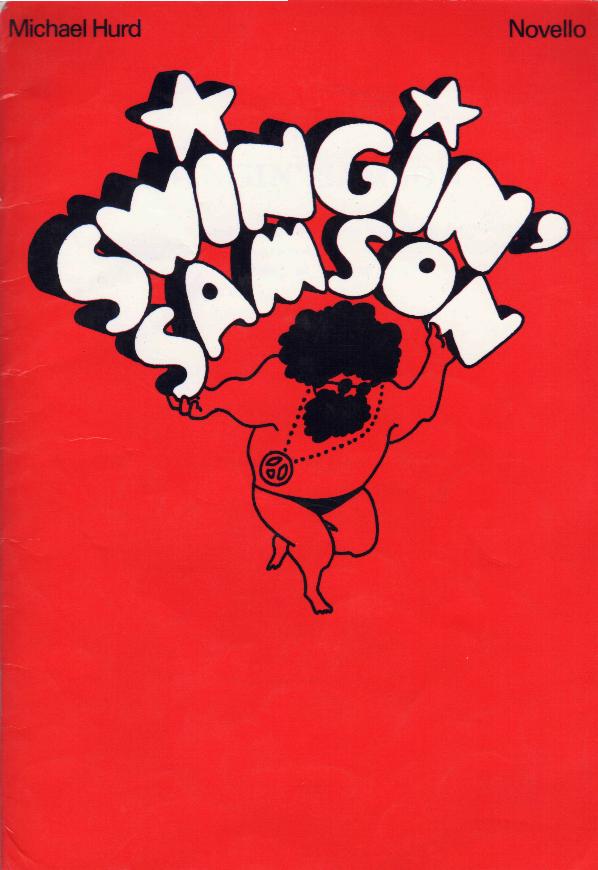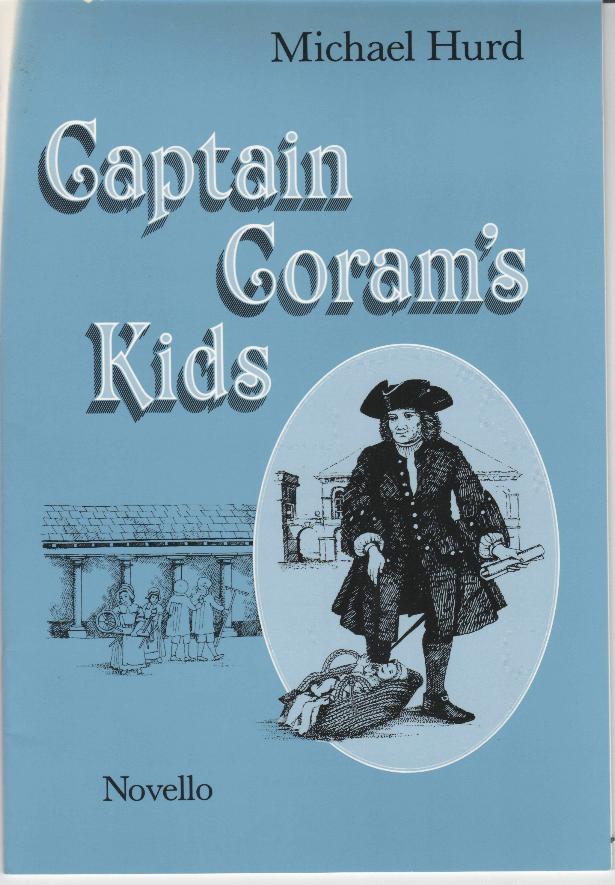MYSELF AND MUSIC
I have no formal philosophy but I like to think I have a pragmatic approach. If not an overwhelming musical genius (and few are in any period) then be useful and practical. Too many composers write vast works for vast forces and then end up wondering why nobody performs them. There are too many first performances with far too few second and third outings for new work.
As for style, what you say is far more important than the originality of the means you use to say it. There seems to be too great an emphasis on finding new ways to say things rather than new things to say with old grammar. There is much still to be said in C major. See Benjamin Britten for examples of using traditional materials in a new way. Use all the available techniques and in particular respond to the language. Why write strained orchestral music for voices and words ?
|

|

|
COMPOSING I write almost wholly to commission, though I'd never accept one which went against the grain. It is important to be practical about commissions and about your deadlines, which should always be honoured. Study the conditions of performance and the abilities of the performers – stretch them if possible but do not break them. Remember the difference between amateurs and professionals. The former do your work for love and in their own time – the latter are paid but often cynical and un-loving of the music they feel is being forced on them.
I myself had a slow start into composing, via school and Oxford to the Royal Marines School at Deal and then free-lancing. I have always noted and been grateful for the existence and support of sponsors and "saviours" in one form or another. As far as a working method is concerned, I use regular morning work sessions at the piano for details, but not for ideas or orchestration. For one thing, on the last point, the physical size of some scores makes work on them at the keyboard a little difficult.
The imprimatur of a good publisher is invaluable. I always consult [Novello's] in advance of committing myself to any work.
|
HOW I WRITE THE POP CANTATAS
The problem is finding a subject – it must have a dramatic shape and lead somewhere. The composer should work out where songs can occur and let them carry the story forward. If possible, avoid the static song.
Finding music and words is simultaneous. Work out the first lines of the words, then the tune completes itself. The rest of the words follow quickly behind.
I do much polishing – I am quick to get the overall sketch, but slow to achieve the final polished version. I go over and over things in my head – if I can carry the tune and words in my memory, then it may be memorable for others.
Do not write for kids – write for yourself, amuse yourself, then you will amuse others – provided that you have a sense of humour to start with. Study Gilbert, Cole Porter, Ira Gershwin, Sondheim, Coward etc. Never be content with flat rhymes and limping metres. Polish and polish. As for outrageous rhymes, put the outrage first (drawed:board), then the far-fetched will appear amusing. Putting it second merely seems far-fetched.
|

|
 |
Tunes must be strong enough to stand on their own feet – after all, they may well be massacred in performance. Great subtlety is not needed but memorability is. One of the keys to this is balancing originality with predictability – surprise singers and players on occasion to shake them awake and help them to enjoy the work without being continually challenged.
For similar reasons, don't depend too heavily on over-clever harmonic schemes. Bold, broad outlines in the melody and bass, but rhythmic details can be quite elaborate. There is a problem in writing accompaniments in the jazz or pop style – many people at whom the work is aimed may not have the skills to interpret notation in the correct idiomatic style. Having said that, accompaniments should be supportive yet independent – they should be pieces in themselves. Rhythmic vitality is essential, but when adding percussion and bass don't overdo it. Study the style and put it in where appropriate, no more. Less is more and a change is as good as anything.
The words are very important – it's not just about composing music. Sophistication, private jokes and allusions are fine – as is a snappy, convincing title.
|
THE COMPOSER AND THE COMMUNITY
Genius can command anything but talent must be practical, modest and useful. It is better, to my mind, to be self-employed and commissioned by those who actually want you, rather than be someone "in residence", thrust upon the university, school or community. Most importantly, it is essential for the composer to work in the community, for example by conducting local forces, as it helps to concentrate the mind on reality and away from ivory-towerism. Be in touch with schools and local choirs, orchestras and the like. After all, only the nineteenth century composer had the strange idea of "artist-as-prophet", struggling remote in his garret on the great masterwork that the world appeared unready to receive.
It is enough to be a craftsman and leave the rest for posterity and time to decide.
|

|
THE CURRENT MUSIC SCENE (c 1975)
The BBC has a vast output of music and is at last turning to explore British music of the past and present. This counters a recent trend which appeared to reflect a serious inferiority complex as regards European music, as if art were some sort of Olympics with prizes and Britain was not fit to compete with the great European tradition.
There are festivals everywhere now, it seems, from the older established events such as the Three Choirs to more recent programmes (like Cheltenham) which specialise more in modern composition and performance. Some are international, some built around a local personality (Aldeburgh, Bath) and some are clearly seen as a status symbol for the relevant local authority.
As for London, there are simply too many orchestras. There is a difficulty in getting some local authorities to finance the arts as they are supposed to do. We hear the usual groans about the cost of opera, but this art form was much admired and flourished in the pre-war period. This is now a better than ever time for the practical, sensible musician.
Competitive festivals are still in existence but are declining and could be regarded as old-fashioned.
[There follows a page dedicated to an survey of the immediate Petersfield area, where Hurd had lived since 1961. The details are unimportant but the fact that he recorded which schools, choirs and orchestras were within striking distance for a "practical, sensible" composer is relevant to an understanding of his work.]
|

|

|
MUSIC IN SCHOOLS
The success of this subject depends enormously on the attitude of the head teacher and the ability of the teacher concerned. Some schools will have no music specialist at all and rely on the work of overstretched peripatetic tutors. The quality can go from the sublime to the incompetent within a few miles. Everything depends on the individual teacher and their ability to inspire.
Kids are capable of anything, rightly led, and the value of music as a life discipline cannot be over-emphasised. There has been a rise in participation in orchestras at school, county and national level, with an encouraging parallel increase in boys' participation through wind and brass bands. By contrast, choral work has declined somewhat.
Encouragingly, people are beginning to recognise the artistic value of jazz and pop (Captain Noah is appearing in A-level work).
On instrumental teaching, with its Associated Boards and grades, I have mixed feelings. People working through such a system tend to learn a piece and not learn music.
|
THE COMPOSER IN THE CLASSROOM
Write for yourself but within the physical scope of the children. Recognise and use the essential value of singing – all music springs from it, because it is part of the performer. Don't worry about words, or how they will understand the sophistication of what you are preparing. Think how much complex information they receive daily from television and radio. Consider the limitations of the teacher, who may be all-purpose and only incidentally a musician. As for the length of concerts, have mercy on the children and their parents !
All-purpose, all-embracing schemes usually fail. Traditional harmony and counterpoint exercises the mind – like an athlete limbering up – so do not despise or reject such activities.
|

|

|
INTERPRETING MY STYLE
I work with rhythm first, then the notes. Tension and correct speed are important, as are metronome marks. I pay close attention to words and word values, hence the time changes that are a feature of my music. Harmonic touches can be used to enhance word interpretation. My own work is more difficult than it looks on paper, since it is somewhat exposed and economic. I like the independent movement of parts – all the parts sing, even the purely orchestral. Harmony arises from the integrity of the moving parts. I use melodic telescopings and extensions, as well as unusual juxtapositions of chords.
|











